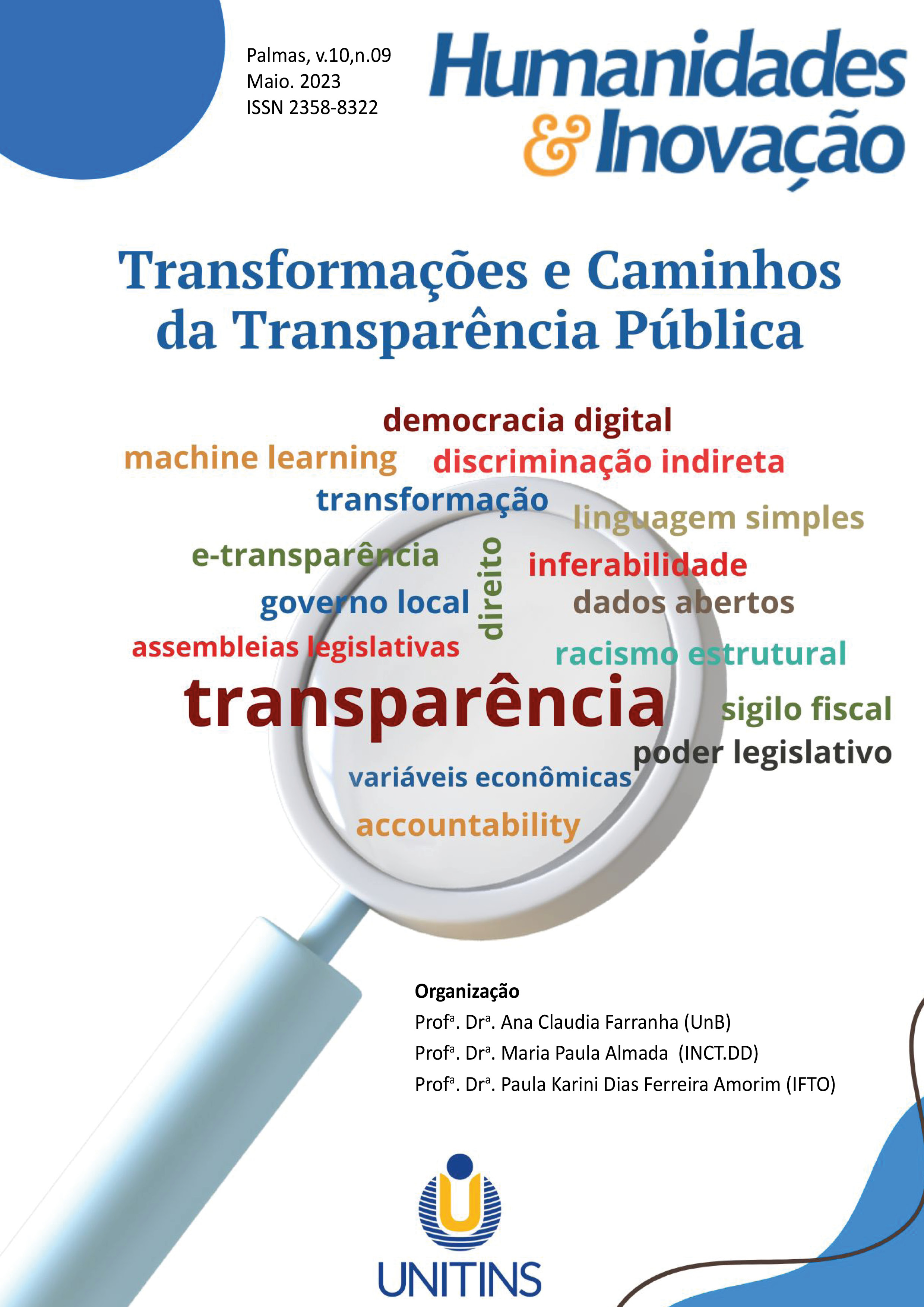ACCOUNTABILITY AND INTERNET IN A COMPARATIVE PERSPECTIVE: THE DIGITAL PERFORMANCE OF PUBLIC CONTROLLERSHIPS IN LATIN AMERICA
Resumo
This paper presents the results of the comparative analysis on the digital accountability mechanisms the government comptroller offices in Latin American countries operate. We analyze the websites and social media pages that those comptroller offices provide to the public due to the principles of open government. Our study addresses the main research question: to what extent the government comptroller offices in Latin America are using the Internet as a tool to enhance the accountability mechanisms? To accomplish the research objectives, we developed an index to measure the performance of the accountability functions in the digital environment: the Digital Comptroller Index (DCI). The DCI aggregates two analytical dimensions: (i) information and legitimacy and ii) popular control and education. The results of the statistical tests showed that political factors do influence the performance of Latin American government comptroller offices concerning the use of digital technologies to improve their accountability.
Referências
BOVENS, Mark; GOODIN, Robert; SCHILLEMANS, Thomas (ed.). The Oxford handbook public accountability. Oxford: Oxford handbooks, 2014.
BOVENS, Mark; GOODIN, Robert; SCHILLEMANS, Thomas. Public Accountability. In: BOVENS, Mark; GOODIN, Robert; SCHILLEMANS, Thomas (Eds.), The Oxford Handbook of Public Accountability, p. 1–20. Oxford: Oxford University Press. https://doi.org/10.1093/oxfordhb/9780199641253.013.0012
BRANDSMA, Gijs Jan; SCHILLEMANS, Thomas. The accountability cube: Measuring accountability. Journal of Public Administration Research and Theory, 2013, 23.4: 953-975.
DAWES, Sharon; HELBIG, Natalie. Information strategies for open government: Challenges and prospects for deriving public value from government transparency. In: Electronic Government: 9th IFIP WG 8.5 International Conference, EGOV 2010, Lausanne, Switzerland, August 29-September 2, 2010. Proceedings 9. Springer Berlin Heidelberg, 2010. p. 50-60
DUBNICK, Melvin. Seeking salvation for accountability. Paper Prepared for delivery at the 2002 Annual Meeting of the American Political Science Association, August 29- September 1, 2002, Boston.
DUNN, John. Situating democratic political accountability. In: Democracy, accountability, and representation. PRZEWORSKI, Adam; STOKES, Susan C.; MANIN, Bernard (ed.). Cambridge: Cambridge University Press, 1999, p. 329-344.
ELSTER, Jon. Accountability in Athenian politics. Democracy, accountability, and representation. In: Democracy, accountability, and representation. PRZEWORSKI, Adam; STOKES, Susan C.; MANIN, Bernard (ed.). Democracy, accountability, and representation. Cambridge University Press, 1999, p. 253-278.
GAILMARD, Sean. (2014). Accountability and Principal–Agent Theory. In: BOVENS, Mark; GOODIN, Robert; SCHILLEMANS, Thomas (Eds.), The Oxford Handbook of Public Accountability. Oxford: Oxford University Press. https://doi.org/10.1093/oxfordhb/9780199641253.013.0012
HEALD, David. Transparency as an instrumental value. Oxford: Oxford University Press for The British Academy, 2006.
HOOD, Christopher; HEALD, David. Transparency: The key to better governance? Oxford: Oxford University Press, 2006.
MARCH, James G.; OLSEN, Johan P. Institutional perspectives on political institutions. Governance, 1996, 9:3: p. 247-264. https://doi.org/10.1111/j.1468-0491.1996.tb00242.x
MARGETTS, Helen. The internet and transparency. The Political Quarterly, 2011, 82.4: 518-521. DOI: 10.1111/j.1467-923X.2011.02253.x
MARGETTS, Helen. The Internet and Democracy. In: DUTTON, William H. (ed.). The Oxford handbook of internet studies. Oxford: Oxford University Press. https://doi.org/10.1093/oxfordhb/9780199589074.013.0020
MEIJER, Albert. Understanding modern transparency. International Review of Administrative Sciences, 2009, vol. 75, n. 2: 255-269. https://doi.org/10.1177/0020852309104175
MEIJER, Albert. (2014). Transparency. In: BOVENS, Mark; GOODIN, Robert E.; SCHILLEMANS, Thomas (ed.). The Oxford handbook public accountability. Oxford: Oxford University Press, 2014. https://doi.org/10.1093/oxfordhb/9780199641253.013.0043
MEIJER, Albert; THART, Paul; WORTHY, Ben. Assessing government transparency: An interpretive framework. Administration & Society, 2018, 50.4: 501-526. DOI: https://doi.org/10.1177/0095399715598341
MULGAN, Richard. Holding power to account: accountability in modern democracies. London: Palgrave Macmillan, 2003. https://doi.org/10.1057/9781403943835
NORRIS, Pippa. Digital divide: Civic engagement, information poverty, and the Internet worldwide. Cambridge: Cambridge university press, 2001.
NOVECK, Beth Simone. Wiki government: How technology can make government better, democracy stronger, and citizens more powerful. Washigton D. C.: Brookings Institution Press, 2009.
PRZEWORSKI, Adam; STOKES, Susan C.; MANIN, Bernard (ed.). Democracy, accountability, and representation. Cambridge University Press, 1999.
ROMZEK, Barbara; DUBNICK, Melvin. Accountability in the public sector: Lessons from the Challenger tragedy. In: ROMZEK, Barbara; DUBNICK, Melvin (eds.) Democracy, bureaucracy, and the study of administration. London: Routledge, 2001. p. 182-204.
SCHEDLER, Andreas; DIAMOND, Larry Jay; PLATTNER, Marc (eds.). The self-restraining state: power and accountability in new democracies. London: Lynne Rienner Publishers, 1999.
A submissão de originais para este periódico implica na transferência, pelos autores, dos direitos de publicação impressa e digital. Os direitos autorais para os artigos publicados são do autor, com direitos do periódico sobre a primeira publicação. Os autores somente poderão utilizar os mesmos resultados em outras publicações indicando claramente este periódico como o meio da publicação original. Em virtude de sermos um periódico de acesso aberto, permite-se o uso gratuito dos artigos em aplicações educacionais, científicas, não comerciais, desde que citada a fonte (por favor, veja a Licença Creative Commons no rodapé desta página).











